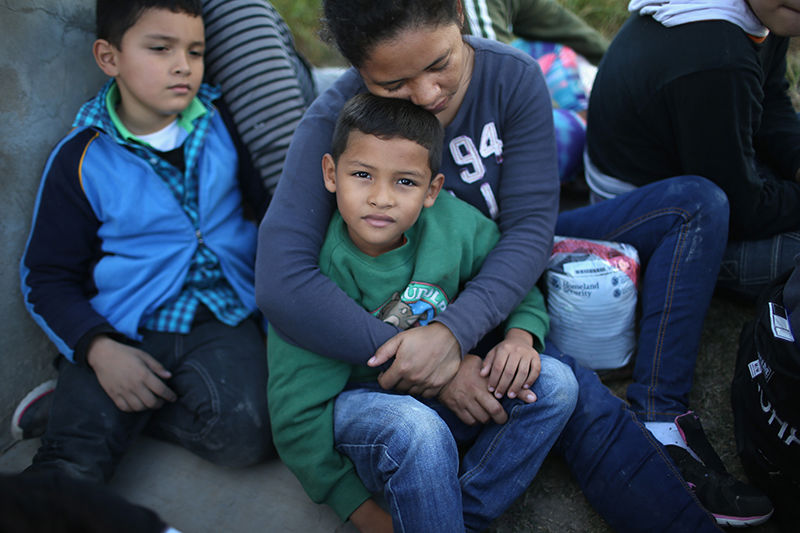Escalating violence in Central America, according to media reports, continue to push unaccompanied minors to flee their countries of origin.
“They are escaping gang violence, especially in Honduras, El Salvador and Guatemala, but also in their families, with abuses of every kind,” said Patricia Ortiz, director of Esperanza Immigrant Rights Project, a nonprofit organization that is part of Catholic Charities of Los Angeles.
The number of minors crossing the border has more than doubled since last year, according to Ortiz. Esperanza provides legal representation for unaccompanied minors and serves immigrants in detention centers in Los Angeles who cannot afford legal counsel.
“After a child turns 10, many gangs look to recruit them,” she said. “They assault them because they want them to join and if they don’t, they threaten them with death and they also threaten their families. Many of these kids are good kids. When they get out of school or church, the gang members are watching them.”
In the case of young women, many are forced into relationships with gang members, Ortiz said. This is daily life for young people in Central America and there is no escape.
“They can’t do things other children do, like play in peace or go to class and those everyday things that are common for children in the United States,” she said, adding the government has not yet been able to mitigate the situation.
Most of the unaccompanied minors who arrive at the border ask for asylum and in many cases they have won their legal battles because of the danger they are fleeing, Ortiz said.
“We’ve heard horrible stories about what happens to minors en route to the United States. Traveling through Mexico, they can also run into gangs, drug traffickers and people looking for a way to take advantage of them,” she said.
“We’ve seen minors be forced by drug traffickers to carry drugs, to be taken into sex trafficking, among other atrocities,” Ortiz added.
Once the children arrive in the United States, their journey is far from over. They often need therapy, education and medical attention, according to Ortiz. Normally, they try to place minors with family members or friends, but if that isn’t possible, they will find a foster home where they can stay while their case makes it through the courts.
“It’s like any other foster care situation. They can stay there while they are minors, and have the option of staying until they’re 21,” Ortiz explained.
Esperanza’s focus is on representing adults in detention and unaccompanied minors arriving in the United States. They represent the minors in court, solicit asylum or a juvenile visa and accompany them through the process. They also help immigrants understand U.S. laws, the immigration process and what options they have before deportation.
Esperanza Immigrant Rights ProjectEsperanza is a nonprofit law office that serves especially vulnerable immigrants, particularly those in immigration detention in the Los Angeles metropolitan region who cannot afford private counsel.The project needs volunteers to help as bilingual interpreters. For more, call (213) 251-3505.

